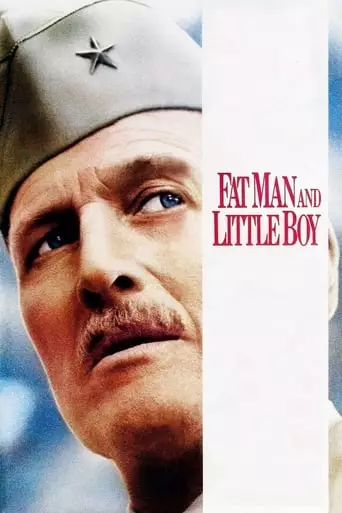
Fat Man and Little Boy (1989) Watch Online Free
Assigned to oversee the development of the atomic bomb, Gen. Leslie Groves is a stern military man determined to have the project go according to plan. He selects J. Robert Oppenheimer as the key scientist on the top-secret operation, but the two men clash fiercely on a number of issues. Despite their frequent conflicts, Groves and Oppenheimer ultimately push ahead with two bomb designs — the bigger “Fat Man” and the more streamlined “Little Boy.”
Fat Man and Little Boy (1989), directed by Roland Joffé, is a historical drama that focuses on the development of the atomic bomb during the Manhattan Project, a pivotal operation during World War II. The movie dramatizes the efforts of scientists and military officials to create the first nuclear weapon, leading up to the bombings of Hiroshima and Nagasaki. The title refers to the two bombs, Fat Man and Little Boy, dropped on Japan. The film centers on two main characters: General Leslie Groves (played by Paul Newman), who oversees the project, and J. Robert Oppenheimer (Dwight Schultz), the brilliant scientist in charge of the bomb’s development. Throughout the film, the tensions between the military’s focus on power and control, and the scientists’ moral concerns about their creation, unfold against the backdrop of the war.
The film explores several complex themes, such as the ethical dilemmas associated with creating weapons of mass destruction, the moral cost of scientific discovery, and the personal sacrifices involved in wartime efforts. Fat Man and Little Boy delves into the psychological strain placed on the key figures in the Manhattan Project. Groves is depicted as a steadfast military man, determined to complete the task at hand despite the consequences, while Oppenheimer struggles with the realization that his creation will be used to annihilate lives.
A significant theme in the movie is the clash between the scientific pursuit of knowledge and the human cost of that knowledge. Oppenheimer, who is often seen as a tragic figure, grapples with the implications of his role in the bomb’s creation. This moral conflict is highlighted through his personal relationships, especially with Jean Tatlock (Natasha Richardson), who symbolizes the intellectual and emotional toll of his involvement in the project.
The film also portrays the dichotomy between Groves’ unwavering commitment to success and the scientists’ growing internal conflicts as they witness the destructive power of their work. It illustrates the intense pressure placed on those involved in the project and the differing motivations between military leaders and academic minds.
Despite mixed critical reception, Fat Man and Little Boy serves as a historical reflection on one of the most consequential events in modern history. The movie brings attention to the complexities of the atomic bomb’s development, shedding light on the ethical and human elements often overshadowed by its political and military implications. The movie’s portrayal of the Manhattan Project helped bring the significance of this moment in history to the screen, though it received criticism for its sometimes oversimplified narrative and lack of emotional depth.
While not a box office success, it continues to be a significant film for understanding the intersection of science, politics, and morality. It provides a window into the lives of those who contributed to the bomb’s creation, offering a nuanced view of how the world-changing decision was made, but also the personal consequences for the individuals involved.
After watching Fat Man and Little Boy, you are likely to experience a mixture of reflection, tension, and perhaps discomfort. The film challenges you to confront the dark side of human innovation, making you think about the real-world consequences of scientific breakthroughs, especially in the context of warfare. The moral conflicts portrayed will linger long after the film ends, leaving you questioning the balance between progress and its potential dangers. It is a film that leaves you contemplating the costs of victory and the ethical responsibilities of those who wield immense power.
Ultimately, the film might not provide easy answers, but it will push you to think deeply about the intersection of technology, war, and humanity
